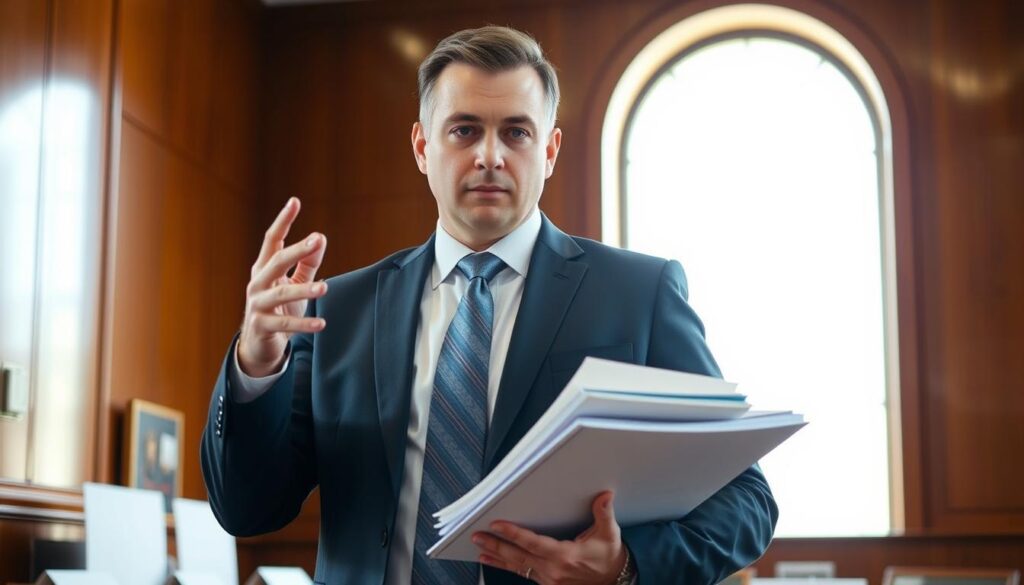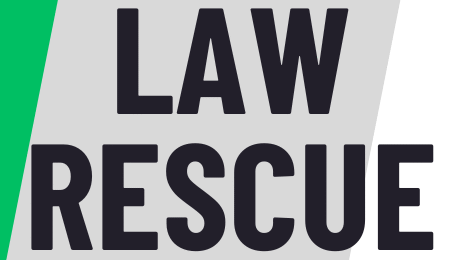Have you ever faced a traffic charge and felt lost in the legal system? You’re not alone. Many people don’t know their options or the consequences of traffic violations.
Finding the right lawyer is crucial. A skilled traffic lawyer can explain your charges, protect your rights, and get you the best result. But, how do you find the right one?
In this guide, we’ll show you how to find a qualified traffic lawyer near you. This ensures you get the expert help you need.
When You Need a Traffic Lawyer
Dealing with traffic laws can be tough. It’s important to know when to get help from a traffic lawyer. Traffic offenses, from small to big, can cause big legal and money problems.
Common Traffic Violations That May Require Legal Assistance
Some traffic offenses need a lawyer’s help. These include:
Speeding Tickets and Moving Violations
Getting a speeding ticket or a moving violation can raise your insurance and add points to your license. A traffic lawyer can help lessen these effects.
DUI/DWI Charges
DUI or DWI charges are serious. They can lead to losing your license and even jail. A local traffic lawyer can offer important legal help.
License Suspension Issues
If your license might be suspended or is suspended, a traffic lawyer can guide you on getting it back.
Potential Consequences of Traffic Violations
Traffic offenses can have big effects. They can hurt your wallet, your driving record, and even your freedom.
Financial Penalties
Fines and court costs for traffic offenses can be very high. This can put a big strain on your finances.
Points on Your License
Getting points on your license can make your insurance go up. It could even lead to losing your license.
Criminal Charges
Big traffic offenses, like DUI/DWI, can lead to criminal charges. This shows why you need a skilled traffic lawyer.
Benefits of Hiring a Traffic Lawyer
Getting a traffic lawyer can help in many ways, including:
Reduced Penalties
A traffic lawyer can try to lessen the penalties for your traffic offense.
Case Dismissal Possibilities
In some cases, a lawyer can try to get the charges dropped. This can save you from the bad effects of a conviction.
Long-term Record Protection
A lawyer can help reduce the impact of a traffic offense. This can protect your driving record for a long time.
Assessing the Severity of Your Traffic Case
It’s important to know how serious your traffic violation is. This helps you make smart choices. Understanding your situation can guide you to the best action and lessen the impact.
Minor Infractions vs. Serious Violations
Traffic offenses vary from small fines to serious penalties. Minor offenses might just cost you money and points on your license. But serious ones could mean losing your license, big fines, or even jail.
Potential Impact on Your Driving Record
Your driving record can be affected by your traffic case. Too many points can raise your insurance and might even suspend your license. Serious offenses stay on your record for years, so it’s key to deal with them quickly.
Insurance Premium Considerations
Getting a ticket can also increase your insurance costs. The more serious the offense, the higher your premiums will go. Insurance companies see drivers with serious offenses as riskier, leading to higher rates.
Professional License Implications
If you have a professional license, a serious traffic offense can be even more serious. Jobs like truck driving or piloting might face stricter rules and could even lose your license. Think about how it could affect your career when you assess your case.
To handle these challenges, finding a traffic lawyer with experience is crucial. An experienced traffic lawyer can explain your case’s severity and help you find ways to lessen the effects.
Finding “Traffic Lawyer Near Me” Options Online
Finding a good traffic lawyer is easy in today’s world. Just a few clicks can lead you to a top traffic lawyer in your area. There are many online tools to help you.
Effective Search Strategies
Start by using smart search strategies. This will help you find the best traffic lawyer. Here are some tips to get you started:
Location-Specific Search Terms
Use search terms that include your location. For example, “traffic lawyer near me in [City/State].”
Using Map Applications
Google Maps and other map apps are great tools. Type “traffic lawyers near me” in the search bar. You’ll get a list of nearby lawyers with their ratings and reviews.
Using Legal Directories
Legal directories are a great place to start. They offer detailed info on lawyers, including their specialties and client feedback.
Avvo, Martindale-Hubbell, and FindLaw
- Avvo has ratings and reviews to help you choose.
- Martindale-Hubbell provides peer review ratings, showing a lawyer’s skill.
- FindLaw lists lawyers by location and area of practice.
Filtering by Specialization and Ratings
Use legal directories to filter by traffic law specialization and ratings. This will help you find the right lawyer for you.
Exploring Law Firm Websites
After finding potential lawyers, check their websites. They offer detailed info on their services.
Evaluating Practice Areas
Make sure the lawyer specializes in traffic law. Their website should clearly state their areas of practice.
Case Results and Success Stories
Look at case results and success stories. They show a lawyer’s experience and success in traffic cases.
By following these steps, you can easily find a skilled traffic lawyer near you.
Leveraging Personal Recommendations
Using your personal network is a smart way to find a good traffic lawyer. Personal recommendations can tell you a lot about a lawyer’s skills and success. If you need a local traffic court advocate, a trusted referral can really help.
Asking Friends and Family
Your friends and family are a great place to start. They can share their good and bad experiences with traffic lawyers. When you ask for recommendations, think about these points:
- Ask about their overall satisfaction with the lawyer’s services.
- Inquire about the lawyer’s communication style and responsiveness.
- Find out if the lawyer was able to achieve the desired outcome.
Workplace Referrals
Your workplace can also be a good source. Colleagues or HR might know a good traffic lawyer. This is especially helpful if the traffic issue is work-related.
Community Groups and Forums
Local community groups or online forums are full of useful info. People often share their experiences and lawyer recommendations. Look for groups focused on legal issues or local events.
Social Media Inquiries
Social media like Facebook, Twitter, or LinkedIn can help too. You can ask for lawyer suggestions on your personal profile or in local groups. Just remember to:
- Be clear about your needs and expectations.
- Ask for specific details about the lawyer’s services.
- Consider the credibility of the sources providing recommendations.
By asking around, you can make a list of potential traffic lawyers. This method helps you find a skilled local traffic court advocate. It also gives you confidence in your choice.

Utilizing Bar Association Resources
To find a good traffic violation attorney, use bar association resources. These groups help both lawyers and people who need legal help.
State and Local Bar Association Referral Services
State and local bar associations have referral services. They can connect you with a traffic lawyer near you. These services list qualified attorneys who know traffic law well.
Visit the American Bar Association (ABA) website to find your state’s bar association. Then, use their referral services.
Verification of Credentials
After getting a list of potential attorneys, check their credentials. Make sure they are licensed in your state and have traffic law experience.
Disciplinary Records Check
Also, check if any disciplinary actions have been taken against the attorneys. You can find this info on your state’s bar association website.
Specialized Traffic Law Sections
Some bar associations have traffic law sections. These sections offer resources like lists of traffic violation attorneys.
Using these resources helps you find an attorney who knows how to handle your case.
Evaluating Traffic Lawyer Credentials
To find the best traffic lawyer, look at their qualifications, experience, and knowledge of local courts. This is key to making sure they can represent you well.
Education and Training
A good traffic lawyer has a law degree, usually a Juris Doctor (J.D.) from a recognized law school. They should also have training in traffic law.
Years of Experience in Traffic Law
Experience matters a lot. An experienced traffic lawyer knows many cases like yours. They use this knowledge to defend you well. Choose a lawyer with lots of traffic law experience.

Specializations and Certifications
Some lawyers focus on traffic law or have traffic law certifications. These show they’re experts and keep up with traffic law changes.
Local Court Experience
A lawyer who knows the local courts is a big plus. This includes:
- Familiarity with local judges: Knowing their ways helps tailor your defense.
- Relationships with prosecutors: Good relationships can help negotiate better for you.
Familiarity with Local Judges
A lawyer who often goes to your local court knows the judges. They can present your case in the best way.
Relationships with Prosecutors
Good relationships with prosecutors can help negotiate. This might lead to lighter charges or penalties.
By looking at these aspects of a traffic lawyer’s credentials, you can choose wisely. This increases your chances of a good outcome.
Reading and Analyzing Client Reviews
Reading client reviews is key to making a good choice. Reviews give insights into a lawyer’s skills, how they communicate, and their success in traffic cases.
Where to Find Reliable Reviews
There are many places to find trustworthy reviews. When looking for a traffic lawyer, check these sources:
Google Reviews and Testimonials
Start with Google Reviews. They show a lawyer’s reputation based on client experiences. Look for lawyers with lots of positive feedback.
Legal-Specific Review Sites
Legal review sites like Avvo or Martindale-Hubbell are also helpful. They offer detailed reviews and ratings from clients.
Red Flags to Watch For
Be cautious of red flags in reviews. These include:
- Consistently negative comments about communication
- Complaints about a lack of professionalism
- Reviews that mention unethical behavior
These signs may point to problems with the lawyer’s service.
Interpreting Mixed Reviews
Mixed reviews are common. Some clients are happy, while others are not. Look for common themes in these reviews.
Patterns in Client Feedback
Patterns in feedback can reveal a lawyer’s strengths and weaknesses. For example, if many reviews say a lawyer is good at reducing fines, they’re likely skilled.
| Pattern | Positive/Negative | Insight |
|---|---|---|
| Communication skills | Positive | Lawyer is responsive and clear |
| Professionalism | Positive | Lawyer is respectful and courteous |
| Case outcome | Negative | Lawyer may struggle with certain cases |
By analyzing reviews and spotting patterns, you can choose a traffic lawyer wisely. Find one who fits your needs.
Comparing Fee Structures and Payment Options
When looking for an affordable traffic lawyer, it’s key to know about different fees and payment plans. The cost of legal help can greatly affect your choice.
Hourly Rates vs. Flat Fees
Traffic lawyers usually charge by the hour or a flat fee. Hourly rates are good for simple cases that don’t take much time. But, complex cases can quickly add up in cost. Flat fees, on the other hand, let you know the total cost upfront.
- Hourly rates are best for easy cases.
- Flat fees are better for complex cases because they’re predictable.
Understanding Consultation Fees
Many lawyers offer free or paid initial consultations. It’s important to know if you’ll be charged for this meeting and what it includes.
Payment Plans and Financing Options
Some law firms have payment plans or financing to help with costs. These options can make paying for legal services easier by spreading out the cost.
Cost-Benefit Analysis
When thinking about the cost of a traffic lawyer, remember the benefits. A good lawyer can lower fines and prevent insurance rate increases.
Potential Savings on Fines
A traffic lawyer can try to lower fines from your traffic ticket. This can save you a lot of money, possibly even covering the cost of the lawyer.
Insurance Premium Considerations
By keeping your driving record clean, a lawyer can help avoid higher insurance rates. This long-term savings can be a big help.
By looking closely at fees and payment plans, you can find a traffic lawyer that fits your budget and needs.
Preparing for Initial Consultations
Getting ready for your first meeting with a traffic lawyer near you is key. Being prepared can greatly affect your case’s outcome. It’s a chance to make the most of this important first step.
Documents to Gather
It’s crucial to have the right documents for your meeting. You should bring:
- Ticket Information: Make sure you have all the details of your traffic ticket. This includes the citation number and any notes.
- Driving Record: Get a copy of your driving record. It shows your driving history.
- Police Reports: If you have them, bring any police reports related to your case.
Questions to Ask Potential Lawyers
Asking the right questions can help you understand a lawyer’s approach and skills. Think about asking:
- Case Strategy Questions: How will you handle my case? What strategies do you suggest?
- Experience Questions: How long have you been practicing traffic law? What’s your success rate?
- Fee Structure Questions: How do you charge? Are there any extra costs?
Taking Effective Notes
During the meeting, take detailed notes. Note the lawyer’s answers, advice, and any next steps. This helps you compare lawyers and choose wisely.
Comparing Multiple Consultations
It’s a good idea to meet with several traffic lawyers. This way, you can compare their methods, fees, and how comfortable you feel with each. This helps you pick the best lawyer for you.
By following these steps, you’ll be ready for your initial consultations. You’ll make a smart choice when picking a traffic lawyer near you.
Evaluating Communication Styles and Accessibility
Good communication is crucial when you work with a local traffic court advocate. You should feel sure that your lawyer is easy to reach and answers your questions well during the legal process.
Responsiveness to Inquiries
A good traffic lawyer answers your calls, emails, or meetings quickly. How fast they reply to your first message shows how they’ll be in the future.
Clarity in Explaining Legal Concepts
Your lawyer should explain complex legal ideas simply. This is key for you to make smart choices about your case.
Availability for Updates and Questions
It’s important to have a lawyer who’s ready to answer your questions and give updates. Ask them about their policy on keeping you informed and how they handle surprises.
Support Staff Interactions
The staff at a lawyer’s office is just as important as the lawyer. See how they treat you, as they often are your first contact. They can greatly affect your experience.
- Pay attention to how promptly your calls are returned.
- Notice if the lawyer takes the time to explain things clearly.
- Consider whether you feel comfortable asking questions.
- Evaluate the helpfulness and courtesy of the support staff.

By looking at these points, you can pick a local traffic court advocate. They should have the right legal skills, communicate well, and be there when you need them.
Making Your Final Decision
Now that you’ve gathered information on potential traffic lawyers, it’s time to decide. This crucial step involves evaluating your options carefully. You need to select the best traffic attorney nearby for your specific needs.
Creating a Comparison Matrix
One effective way to compare your options is by creating a comparison matrix. This tool allows you to visualize the strengths and weaknesses of each candidate.
| Lawyer | Experience | Fees | Client Reviews |
|---|---|---|---|
| Lawyer A | 10 years | $200/hour | 4.5/5 |
| Lawyer B | 5 years | $150/hour | 4.0/5 |
| Lawyer C | 15 years | $250/hour | 4.8/5 |
Trusting Your Instincts
While data is important, your intuition also plays a significant role. Consider how comfortable you felt during consultations. Also, think about how well each lawyer understood your situation.
Trusting your instincts can be just as important as the facts and figures you’ve gathered.
Finalizing the Attorney-Client Agreement
Once you’ve selected a lawyer, you’ll need to finalize the attorney-client agreement. This document outlines the scope of work, payment terms, and responsibilities of both parties.
Understanding Scope of Representation
It’s crucial to understand what services your traffic attorney nearby will provide. This includes court representation, negotiation with prosecutors, and guidance on the best course of action for your case.
By carefully creating a comparison matrix, trusting your instincts, finalizing the attorney-client agreement, and understanding the scope of representation, you can confidently make your final decision. Then, proceed with your case.
Working Effectively With Your Traffic Lawyer
Working well with your traffic lawyer can greatly change your case’s outcome. To get the best results, knowing what makes a good lawyer-client relationship is key.
Maintaining Open Communication
Good communication is the base of a strong partnership with your traffic violation attorney. Always ask questions, share your worries, and give all details about your case.
Providing Requested Information Promptly
Your traffic lawyer might need certain documents or info to defend you well. Giving them what they ask for quickly can avoid delays and boost your case.

Understanding the Legal Strategy
Knowing the legal plan your traffic violation attorney has is crucial. This knowledge lets you make smart choices and have clear expectations about the case’s end.
Court Appearance Preparation
If your case goes to court, your traffic lawyer will show you how to get ready. This might include dressing right, being on time, and knowing how the court works.
Following Through on Lawyer Recommendations
The advice from your traffic lawyer is meant to help you win. Listening to them can greatly affect your case’s outcome.
By working well with your traffic violation attorney and following these tips, you can handle your traffic case with confidence.
Conclusion
You’ve learned how to find and work with a traffic ticket lawyer. You know when you need legal help and how to choose the right lawyer. This knowledge helps you make a smart choice.
A good traffic ticket lawyer can really help your case. They might lower your fines, reduce points on your license, and save you money on insurance. By following this guide, you can find a lawyer who fits your needs.
It’s important to talk well and work together with your lawyer. Keeping in touch and following their advice helps you deal with traffic court confidently.
Choosing a skilled traffic ticket lawyer is a smart move. It gives you expert help and makes you feel more at ease during the legal process.
Frequently Asked Questions
What are the prevalent driving infractions that necessitate legal representation?
Prevalent traffic infractions necessitating legal representation encompass excessive speed, driving under the influence (DUI/DWI), irresponsible operation of a vehicle, and operating a vehicle with a suspended license. These may adversely affect your driving record and increase insurance premiums.
What is the method to locate a traffic attorney in my vicinity?
Seek a traffic attorney via web searches, legal directories, or personal referrals. Your local or state bar association may provide assistance as well.
What criteria should I consider while assessing a traffic lawyer’s qualifications?
Evaluate their educational background, experience in traffic law, and areas of specialization. Additionally, seek any punitive measures.
What criteria can I use to determine if a traffic attorney possesses relevant experience in situations similar to mine?
Inquire about their expertise with analogous cases, their success record, and their familiarity with local court proceedings.
What are the various fee schemes employed by traffic attorneys?
Attorneys may bill on an hourly basis, impose a flat fee, or require a consultation fee. Certain entities provide payment arrangements. Inquire on their fees and the inclusions therein.
What steps should I take to prepare for my initial session with a traffic attorney?
Collect your traffic citation and driving history. Compile a list of inquiries. Document observations during the consultation.
What characteristics should I seek in a traffic lawyer’s communication style?
Seek an attorney who demonstrates prompt responsiveness, articulates concepts clearly, and provides regular updates. Take into account their support personnel as well.
What criteria should I use to determine if I have selected the appropriate traffic attorney for my case?
The appropriate attorney possesses the requisite experience, qualifications, and communication approach. Trust your intuition and seek a second view.
What advantages are associated with employing a traffic attorney?
A traffic attorney can assist you in comprehending traffic legislation, mitigating or nullifying charges, and safeguarding your driving record and insurance.
Can a traffic attorney assist me in evading heightened insurance premiums?
A lawyer can negotiate with prosecutors, contest evidence, and represent you in court to mitigate elevated insurance expenses.
How can I guarantee efficient collaboration with my traffic attorney?
Maintain open communication, disseminate information promptly, and comprehend their legal approach. Prepare for court and adhere to their counsel.

